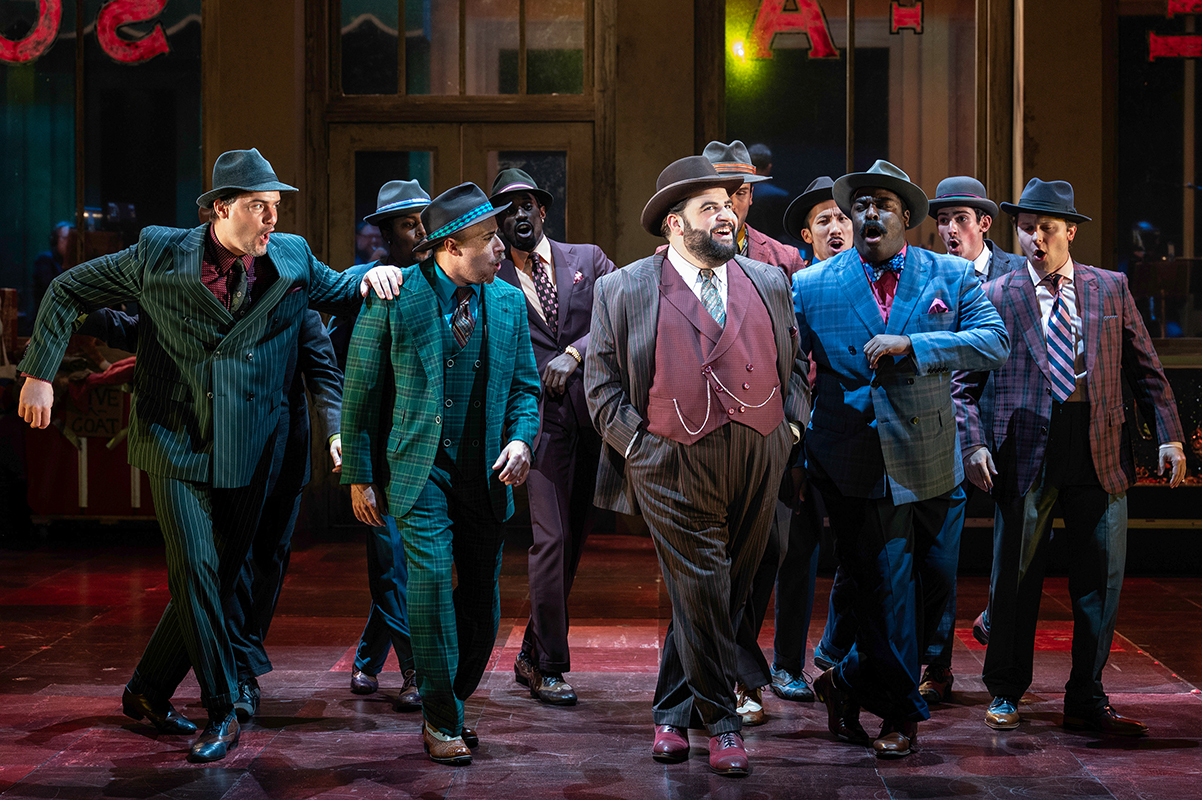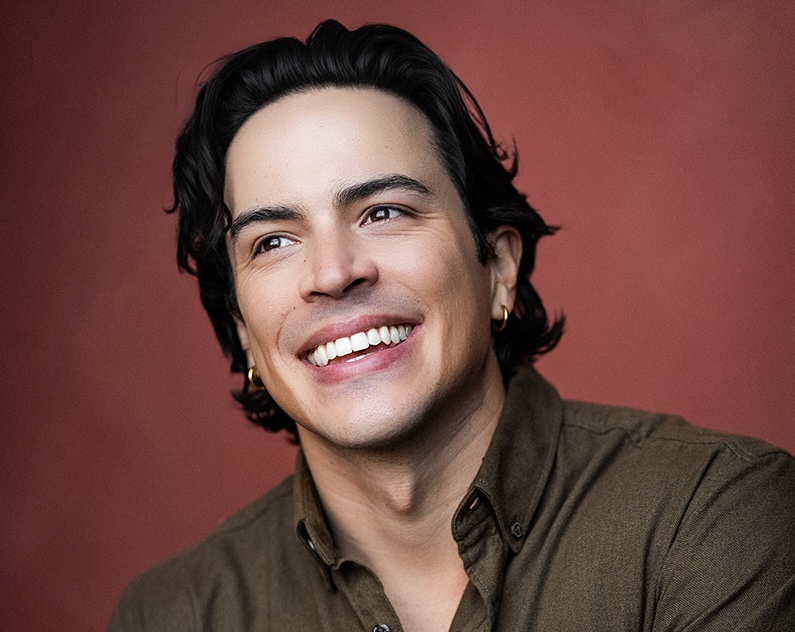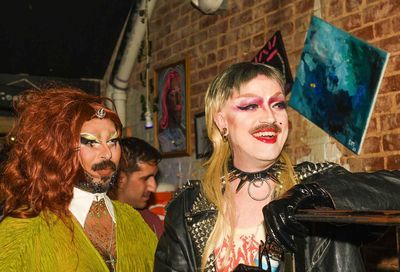Naked Ambition
A clothes-free vision of 'Macbeth' grabs attention, but suffers from a lack of consistency in the performances
Jose Carrasquillo’s interpretation of Macbeth at the Washington Shakespeare Company, a production where the full cast is nude for the entirety of the play, has most certainly gained some attention. It’s even inspired some chuckles: ”Is that a dagger that I see before me? Oh. No. I guess it isn’t.” And the less said about ”screwing one’s courage…” to any place and the pricking of thumbs the better. But the ultimate question is whether or not the idea really works. Is Carrasquillo’s production a bold re-imagining of Shakespeare’s ”Scottish Play” or a gimmick designed to lure audiences to WSC’s tough-looking Clark Street Playhouse in Crystal City?
In truth, it appears to be a little of both.
 |
In terms of Shakespeare’s work, Macbeth is slightly more Romeo and Juliet than The Tempest. That is to say, it is a play people feel comfortable with based on their familiarity with touchstones like ”bubble, bubble, toil and trouble” and ”something wicked this way comes.”
The show opens with a trio of witches, or ”the three weird sisters,” meeting under the drear of a heathbound thunderstorm of their own making. The women are seers and, upon meeting Macbeth and his companion Banquo, prophesy that Macbeth will soon be king. The news leads Macbeth and his wife, the Lady Macbeth (she of ”out, out damn spot” fame), to conspire to commit murder — though not without consequence — and ensure the witches’ prediction. Unashamed though not unafraid of committing further deeds of murder and deceit, Macbeth rakes his way steadily forward, leaving a trail of death in his wake. True, the king is occasionally frightened by the literal ghosts of his past and haunted by the grim prophecies of his future well-being, to say nothing of the creeping madness which claims his mind, but those hardly slow his tyrannical reign.
Macbeth is a rich and wonderful text which brings together realistic political intrigue and fantastic superstition and sorcery. But the question still begs to be answered: Why perform the work in the nude?
First, and most importantly, it is clear that director Carrasquillo has set out to do something bold and innovative and driven by a motivation that goes far beyond gimmick. There is something raw and primal about his vision of Macbeth. In many ways the concept he puts forward speaks eloquently of the brutal nature of the deeds committed by Lord and Lady Macbeth. There is nothing graceful about the two, nothing stately about their — forgive the pun — naked and blinding ambition.
And to look at things from a purely aesthetic standpoint, many of the doubts one might have concerning the validity of a nude production begin to dissipate when the three witches slither and scurry their way onto the stage in the play’s opening moments. There is something so poetic about the image of these three women perched on the edge of their glowing cauldron, so positively right, that everything seems perfectly in balance.
Unfortunately that balance is not consistently found throughout the show — and that becomes problematic. For Carrasquillo’s vision to be truly achieved, his company of actors must be so skilled, so positively stunning that they allow the audience can move beyond the actors’ state of undress and invest their attention in the performances. That transition is never really made.
This is not to say that there is not some outstanding work. Daniel Eichner is a wonderful Macbeth, taking the king from horror to madness with a sure hand and a wonderfully wrenching performance. Ashley Robinson is similarly stunning in her portrayal of the first of the three witches with Jay Hardee and Denman C. Anderson doing their own solid turns in multiple roles, including playing King Duncan’s grieved sons. But these actors are the standouts in a cast whose performances are largely uneven.
| MACBETH To July 22 Washington Shakespeare Co. 601 S. Clark St. Arlington $25-$35 800-494-TIXS |
Further complicating matters is the fact that each actor, with the exception of Eichner, is playing a number of roles. Kathleen Akerly is not only the Lady Macbeth, but Hecate, Queen of Witches. In both roles, there is something oddly modern about both her stance and attitude. She seems out of place on the stage and never seems to fully connect with either her characters or fellow castmates.
There is no doubt that the D.C. area theater scene will greatly benefit from the experiments of directors like Carrasquillo and the bravery of theater’s like the WSC to give such works a home. However, what is necessary for this kind of work to ultimately thrive is for bold concepts and creative ideas to be matched by equally strong, one might argue near flawless, execution.
Support Metro Weekly’s Journalism
These are challenging times for news organizations. And yet it’s crucial we stay active and provide vital resources and information to both our local readers and the world. So won’t you please take a moment and consider supporting Metro Weekly with a membership? For as little as $5 a month, you can help ensure Metro Weekly magazine and MetroWeekly.com remain free, viable resources as we provide the best, most diverse, culturally-resonant LGBTQ coverage in both the D.C. region and around the world. Memberships come with exclusive perks and discounts, your own personal digital delivery of each week’s magazine (and an archive), access to our Member's Lounge when it launches this fall, and exclusive members-only items like Metro Weekly Membership Mugs and Tote Bags! Check out all our membership levels here and please join us today!


























